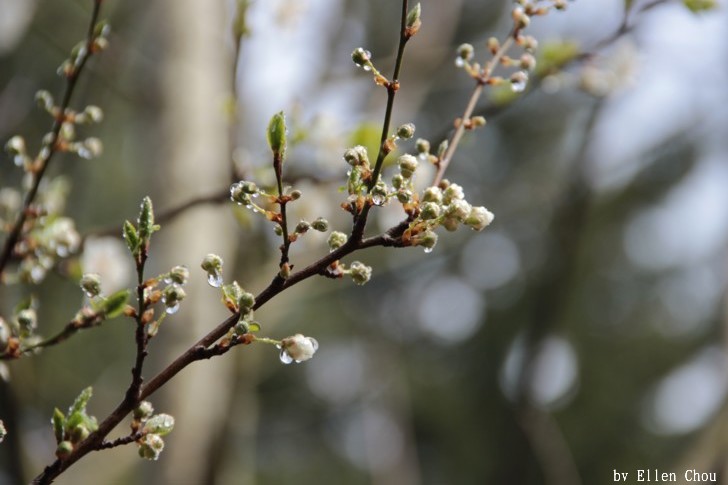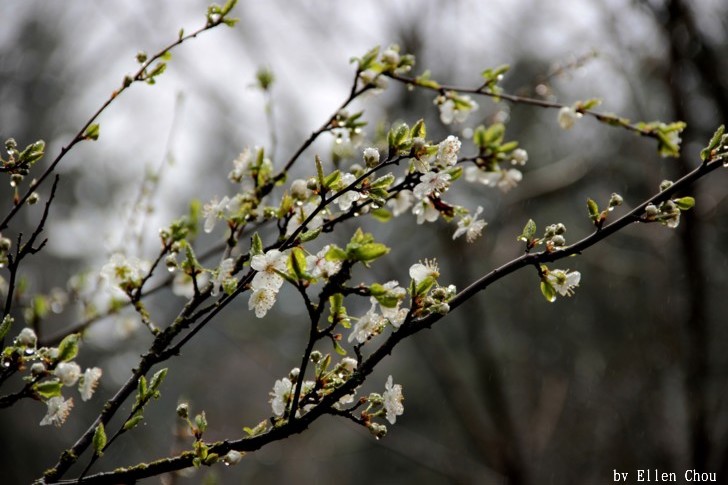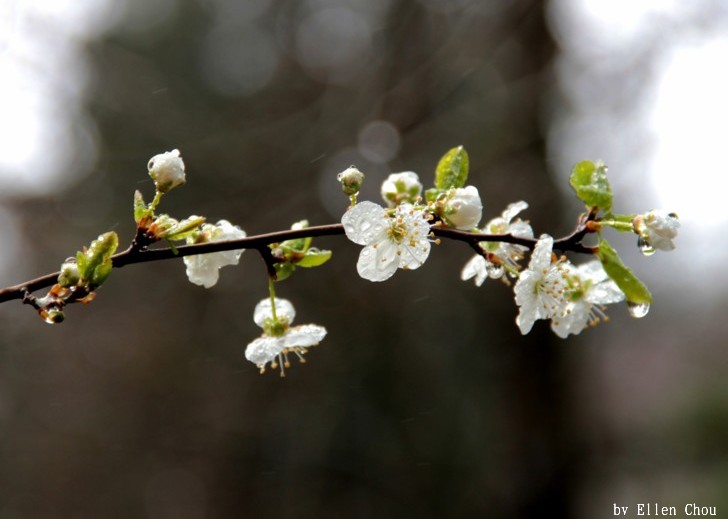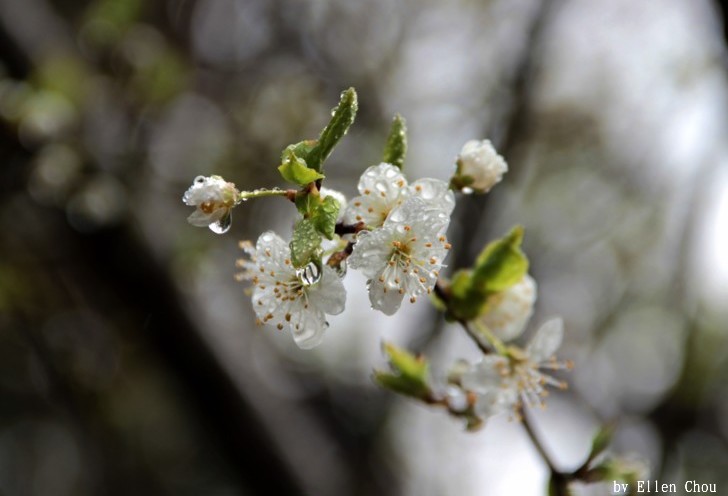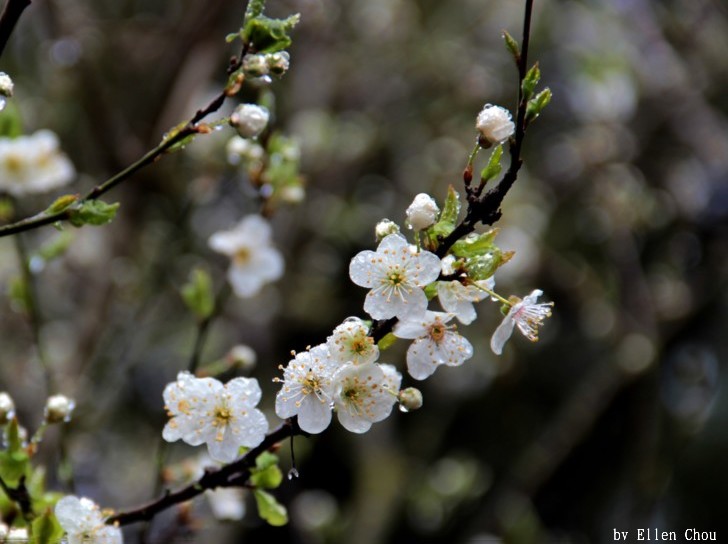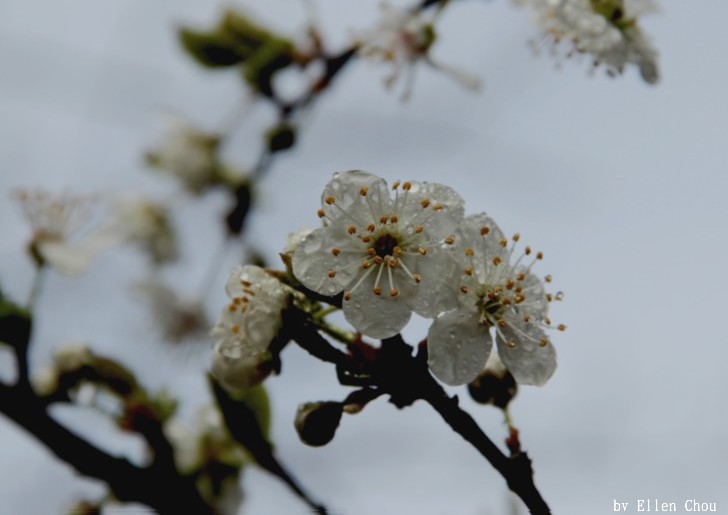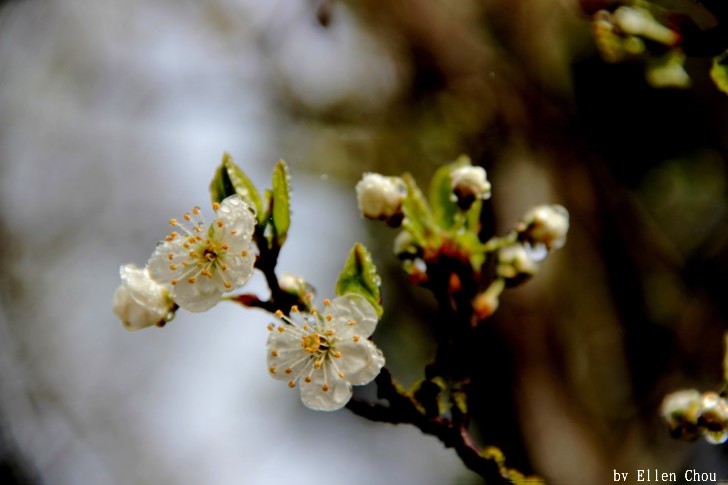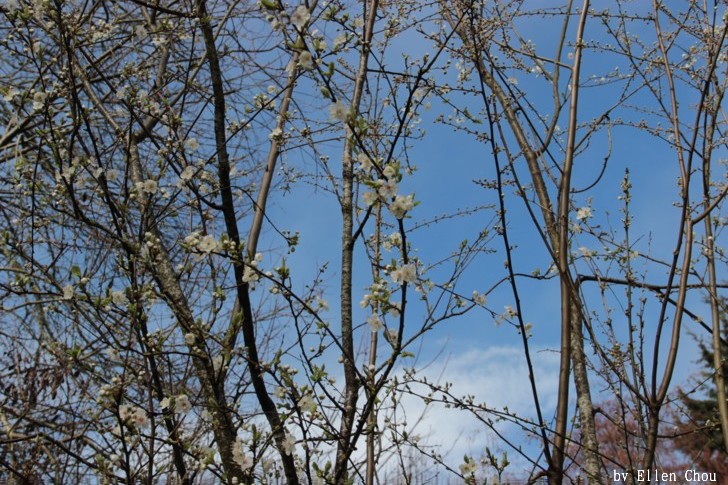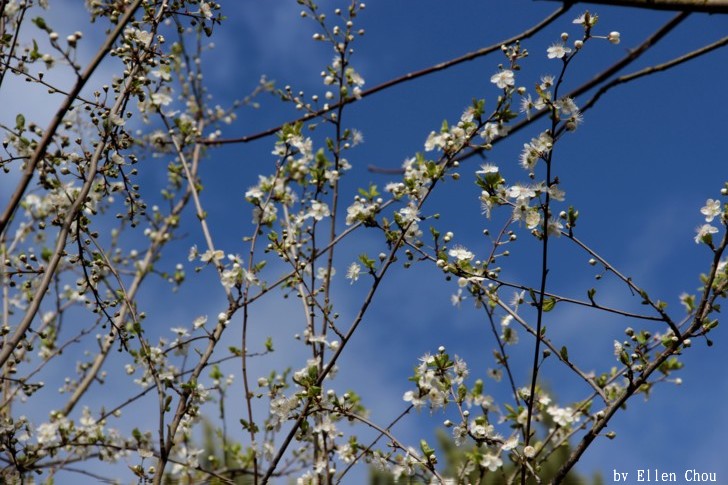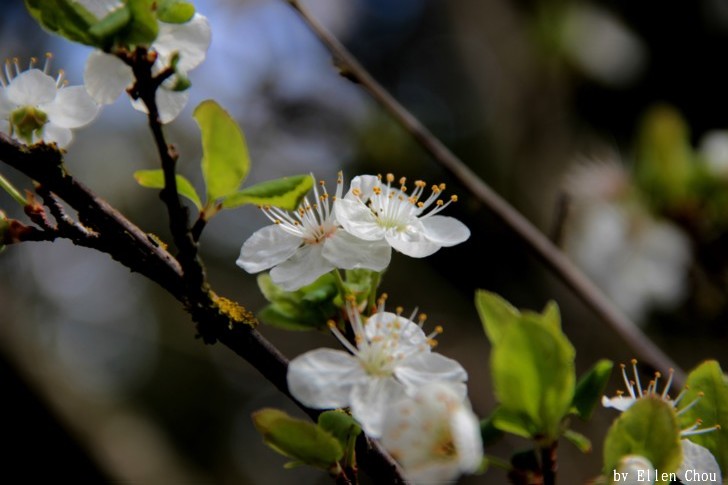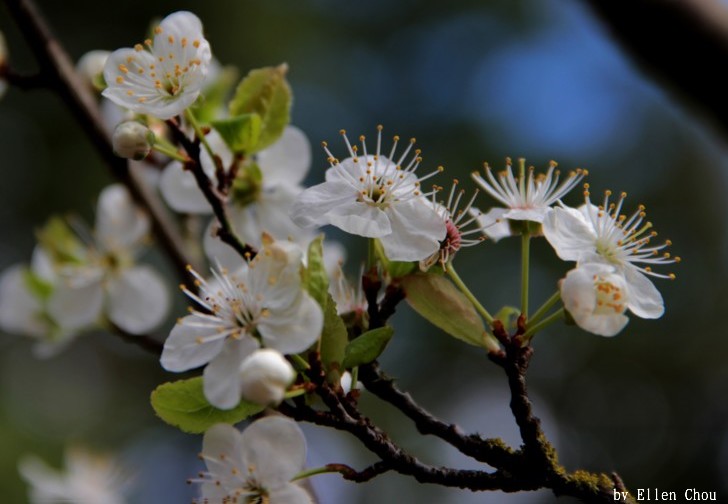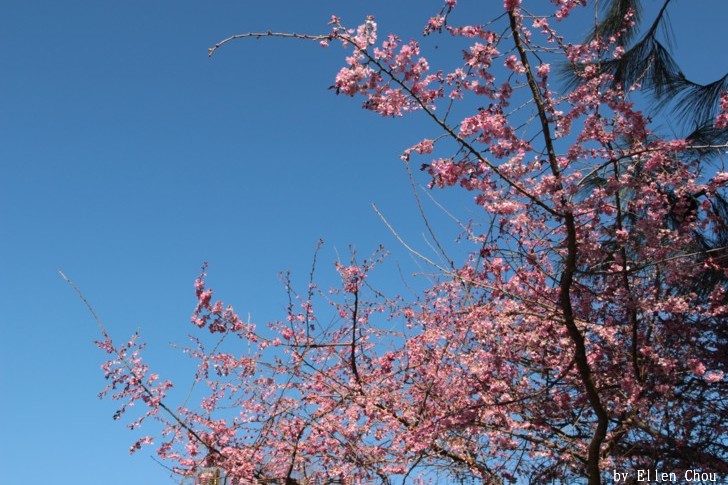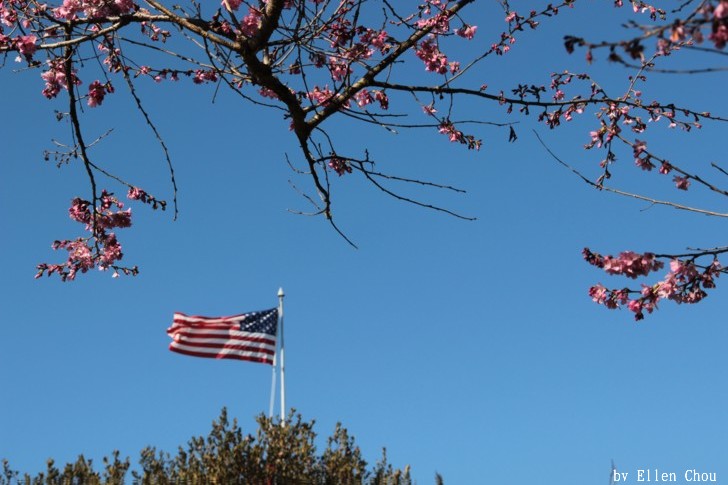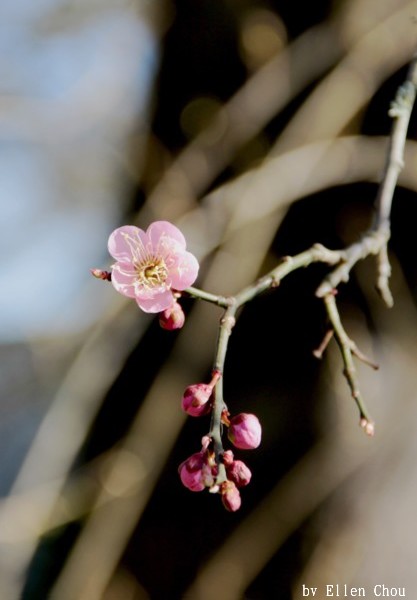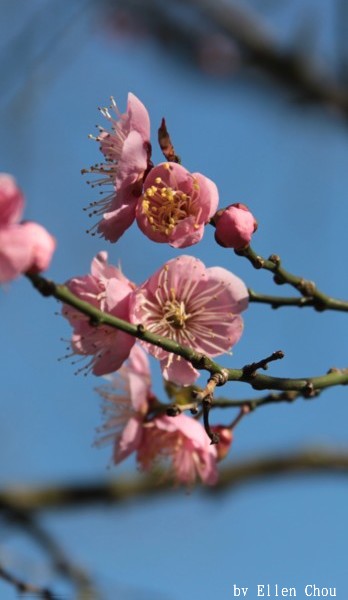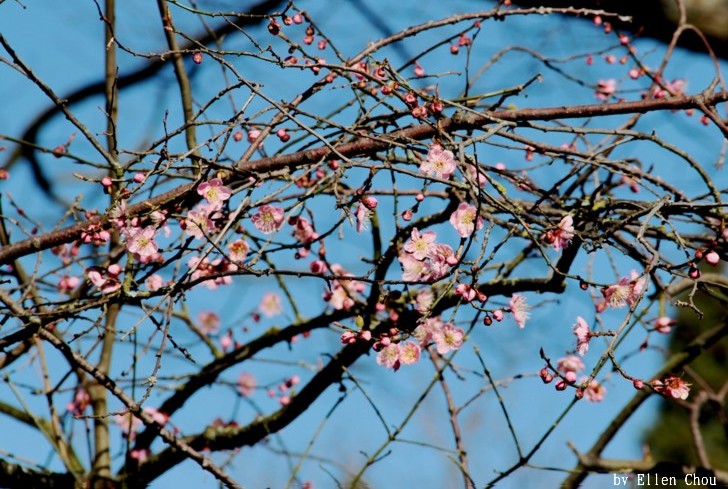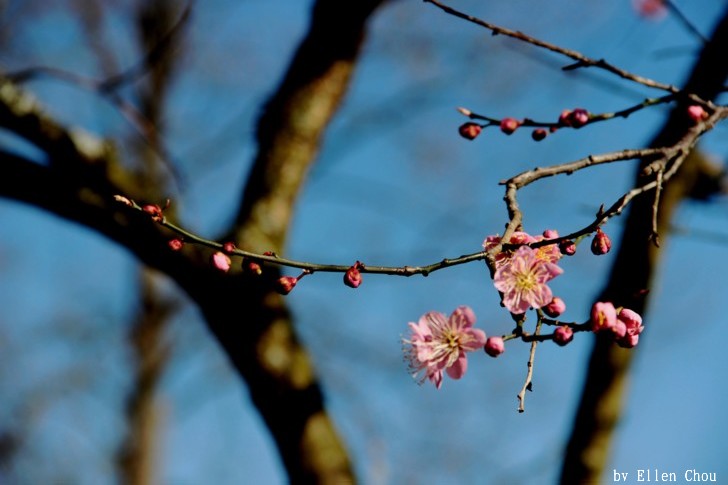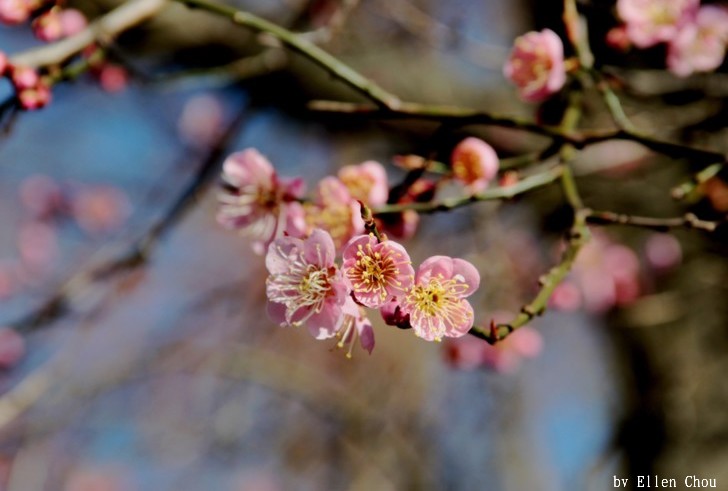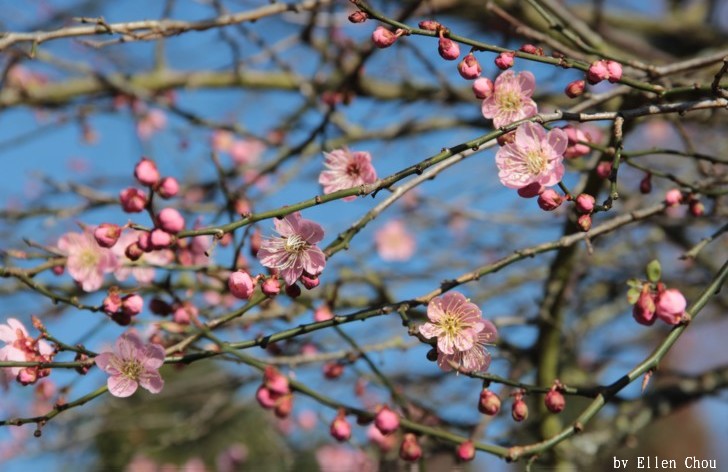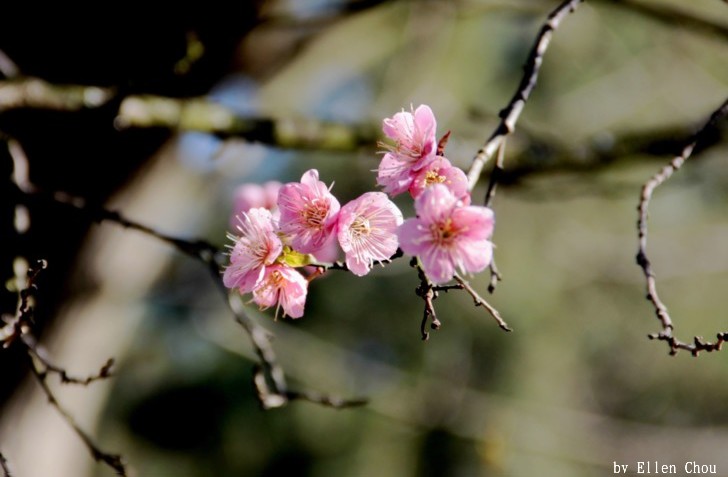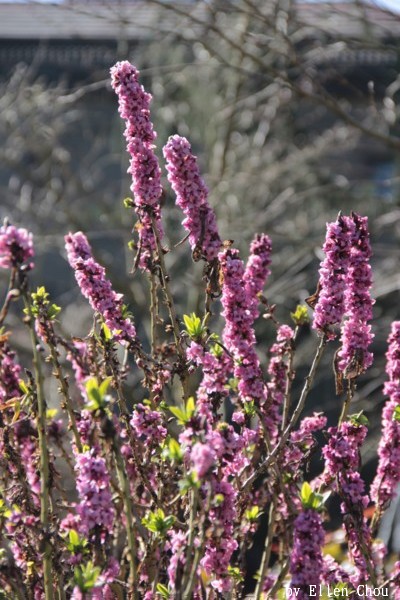

 字體:小 中 大
字體:小 中 大 |
|
|
|
| 2014/03/06 06:31:06瀏覽1085|回應20|推薦59 | |
|
每年春天﹐林子裡會開一種小小的白花﹐樹很高﹐花很繁﹐比櫻花開得早﹐那時候還沒有買較遠的鏡頭﹐每次看得到卻拍不到﹐只是在心中留個問號。等葉子長滿了﹑花落盡了﹐也就把它給放諸腦後。 今年我負責送小外孫去上學(Nature Kids at Discovery Park)﹐送進教室後﹐我也隨興在林子裡走走﹐巧遇這一棵年輕的樹﹐在微雨中讓我盡情地拍呀拍呀… 非常開心!
然後﹐雨停了﹐露出藍色的天空。
也許是李花。
西雅圖有很多品種的櫻花﹐開放時間也不同﹐這棵是比較早的﹐
這個角度﹐可以拍到一面飄揚的星條旗。
可是﹐我多麼希望是一面青天白日滿地紅的國旗啊! 當我在Carl S. English Jr. Gardens花園裡發現了這棵「Peggy Clarke」梅花之後﹐隔了兩天我又去了一趟﹐心想﹐那些花蕾應該開出來了! 花開堪拍直需拍呀!
園藝家周楚狷說:梅花的拉丁學名是「Prunus mume」,一般人卻稱它為「Japanese flowering apricot」(日本杏花樹),美國梅花品種有限,沒有太多選擇餘地,少數園藝郵購公司供售的梅花品種都比較混亂,不能確定是不是真梅,比較知名的是「克拉克系列」的四個品種,都是園藝家W.B. Clarkes在1980年代從日本引進,以他本人和他三個女兒的名字來命名,其中,「W.B. Clarke」是開粉紅花的垂枝梅,植株成熟後枝條下垂。以三個女兒命名的都是直枝梅,「Bonita Clarke」開複瓣紅花,「Rosemary Clarke」開重瓣白花,「Peggy Clarke」開複瓣粉紅色花,都帶有真梅的香味。 據說﹐這梅花有香味﹐我特別把梅枝拉近來用力聞﹐無感。
反倒是就在梅樹不遠處有一棵盛開的矮花﹐不知其名﹐有異香。
這個周末,雲門舞集在華大演出。 同學邀我一起去欣賞。 機會難得。 林懷民也算是一位故人。 他出國留學的第一站是密蘇里新聞學院, 和我們做了半年同學 民國六十二年(1973)五、六月,大地出版社分別出版了我們的書: 〈蟬〉和〈大豆田裡放風箏〉 那時, 他剛開始學跳舞 我剛開始學做飯 後來 我為生活開過餐館 他為理想 創辦了雲門 見證林懷民長達四十年的堅持 我將在臺下含著熱淚鼓掌 !!!
西雅圖時報藝評: Originally published Friday, March 7, 2014 at 10:43 AM Golden visions from Cloud Gate Dance Theatre of Taiwan | Dance reviewIn its Seattle debut, Cloud Gate Dance Theatre of Taiwan presents its visionary signature piece, “Songs of the Wanderers,” inspired by the choreographer’s visit to the village in India where Buddha attained enlightenment. Through March 8, 2014. Seattle Times arts writer
You hear the rice before you see it. As the curtain rises in the darkened theater, a spotlight illuminates a short, narrow vertical shaft of something shimmering. Phase by phase, the strangely fluid shaft grows longer until you register what it is: a steady stream of golden rice rattling down on the head of a Buddhist monk (Wang Rong-yu). The monk will stand motionless under that shower for almost the entire 90 minutes of Cloud Gate Dance Theatre of Taiwan’s “Songs of the Wanderers.” But the stage world surrounding him will go through struggles, convulsions and precarious balancing acts, before exploding into ecstasy. Cloud Gate Dance Theatre was founded in Taiwan in 1973, and “Songs of the Wanderers,” from 1994, is one of its signature pieces. Cloud Gate’s founder/director, choreographer Lin Hwai-min, describes it as “a work about practicing asceticism … and the quest for quietude.” It was inspired by a trip he made to the village in India where Buddha achieved enlightenment. Enlightenment, however, doesn’t come easily — and that’s where the controlled tension and reckless prowess of Cloud Gate’s dancers come into the picture. When they first emerge on the stage holding tall gnarled wooden staffs, they slink forward more like hunters than any kind of pilgrim. Their faces are striped in pale tribal markings; their costumes are a bare minimum of loin-cloth and tunic. Soon their butoh-slow contortions and acrobatics build up to desperate/rapturous expansions of limbs and torso. The maze of golden rice they’ve entered — three and a half tons of it — seems to both entrap them and guide them. At moments of frustration or breakthrough, they fling the rice in golden arcs. Specific dance motions phase in and out, with unison passages frequently dissolving, dancer by dancer, into something new. The sense of ambiguous progress being made within a gathering timeless stasis is palpable. While virtuosic solo turns aren’t the point of the piece, two soloists do stand out: Huang Pei-hau and Hou Tang-li in sections dubbed “prayers,” both highlighting prayer as a volatile business, as filled with reversals as it is with hope. The two performers approach their task with intensity and abandon. Also operating on their own, but on a very different plane, are Wang’s motionless monk and a second figure who appears throughout the piece: Lin Hsin-fang as a rice raker who continually works to create a meditative pattern in the chaos of the flowing rice. Chang Tsan-tao’s extraordinary, intricate lighting design feels like a character in itself, alternately engulfing and releasing the dancers as it shifts in shape and emphasis. The choral music accompanying the piece — spare, melancholy folk songs performed by Ensemble Rustavi of Georgia — is the final element that creates the spell onstage. (Some lucky audiences will get to hear Ensemble Rustavi perform them live when Cloud Gate takes “Songs” to Germany in May.) This is the first time Cloud Gate has performed in Seattle. Judging by the jubilant reception they got, they’ll surely be welcomed back. Michael Upchurch: mupchurch@seattletimes.com
|
|
| ( 創作|散文 ) |



